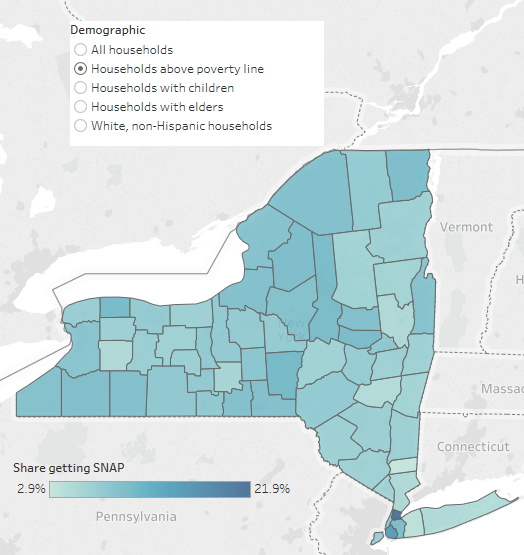Press Release: Families Lack Affordable Housing Statewide, Rent burdens leave families and communities without a firm foundation
For Immediate Release: April 29, 2019 Media Contact: communications@fiscalpolicy.org, 518-786-3156 (Albany, NY) Today the Fiscal Policy Institute released a new report “Nearly Half of New York Renters Are Rent Burdened” (add link) showing a majority of renting families statewide are “rent-burdened” meaning that they pay over the recommended standard of 30% of their income in rent – and for families of color that percentage climbs even higher. FPI cautions that the effects of rent burdens hurt families, local communities, and the state. With the state [...]

